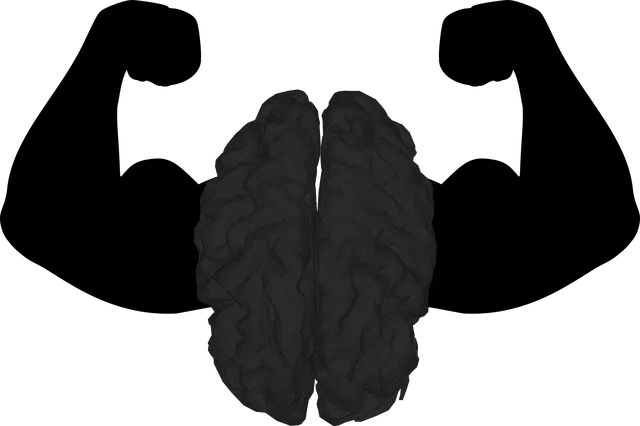The Kaiser Permanente behavioral health center in Lafayette utilizes data analysis as a cornerstone of its mental health care approach, identifying trends like anxiety and depression through EHRs and demographic studies. This strategy empowers evidence-based practices with personalized interventions, including wellness coaching and coping skills development. By combining statistical methods with patient understanding, the center improves care delivery via tailored programs, addressing disparities and tracking treatment effectiveness. However, it faces challenges in data privacy, confidentiality, and stigma reduction, requiring ethical handling and communication strategies to enhance inclusive mental health services.
Mental health data analysis is a powerful tool for improving patient outcomes at institutions like the Kaiser Permanente Behavioral Health Center Lafayette. By understanding, collecting, and interpreting patient information, healthcare providers can uncover insights that drive better care. This article explores the process from data collection and storage to advanced analysis techniques and ethical considerations. Learn how these steps are transforming mental health services at Kaiser Permanente Behavioral Health Center Lafayette, offering more personalized and effective treatments.
- Understanding Mental Health Data at Kaiser Permanente Behavioral Health Center Lafayette
- Collection and Storage of Patient Information
- Techniques for Effective Mental Health Data Analysis
- Interpreting Findings to Improve Patient Care
- Challenges and Ethical Considerations in Data Interpretation
Understanding Mental Health Data at Kaiser Permanente Behavioral Health Center Lafayette

At Kaiser Permanente Behavioral Health Center Lafayette, understanding mental health data is paramount to delivering effective care and tailored interventions. The center leverages robust datasets, encompassing patient demographics, clinical assessments, and treatment outcomes, to gain insights into mental health trends among its diverse population. By meticulously analyzing this data, healthcare professionals can identify patterns, such as prevalent conditions like anxiety disorders or depression, and determine the effectiveness of various therapeutic approaches. This knowledge drives evidence-based practices, ensuring that each patient receives personalized support.
Through in-depth data interpretation, the center has recognized the importance of building resilience and coping skills development programs. Recognizing that mental wellness coaching can significantly enhance recovery rates, Kaiser Permanente Lafayette has pioneered initiatives focused on these areas. Their goal is to empower individuals with strategies for managing stress, improving emotional regulation, and fostering long-term mental health sustainability, thereby enriching their overall quality of life.
Collection and Storage of Patient Information

The collection and storage of patient information at Kaiser Permanente behavioral health centers, such as the one in Lafayette, play a pivotal role in mental health data analysis. Patient records, including medical history, treatment plans, and progress notes, are meticulously documented and stored securely to ensure confidentiality. This digital repository allows for comprehensive data analysis, enabling healthcare professionals to identify trends, assess treatment efficacy, and tailor interventions accordingly. By analyzing aggregated data from these centers, researchers can uncover insights into common mental health challenges and develop evidence-based strategies.
At the Kaiser Permanente Lafayette behavioral health center, patient information is collected using a combination of electronic health records (EHRs) and manual documentation. EHR systems digitize critical data, making it easily accessible for authorized personnel. This digital approach streamlines the process of data collection and storage, facilitating efficient analysis. Additionally, these centers adhere to strict security protocols to protect sensitive patient information, ensuring compliance with privacy regulations like HIPAA (Health Insurance Portability and Accountability Act). Such robust practices are essential for maintaining trust and providing effective Crisis Intervention Guidance and Stress Reduction Methods while also supporting Depression Prevention initiatives.
Techniques for Effective Mental Health Data Analysis

At the Kaiser Permanente behavioral health center Lafayette, mental health data analysis is approached with a blend of advanced statistical methods and patient-centric understanding. Effective techniques involve normalizing and aggregating data to ensure privacy while preserving insights. Advanced analytics tools like machine learning algorithms help identify patterns in patient experiences, treatment responses, and potential risk factors, offering valuable insights into what works best for different populations.
For instance, the Community Outreach Program Implementation leverages data to understand the impact of community-based interventions on mental well-being. By integrating self-reported surveys with clinical outcomes, the center can assess how programs aimed at promoting Self-Care Routine Development for Better Mental Health and Self-Esteem Improvement resonate with diverse patient groups. This data-driven approach not only ensures tailored interventions but also fosters continuous improvement in care delivery.
Interpreting Findings to Improve Patient Care

At the Kaiser Permanente behavioral health center Lafayette, interpreting data findings is a cornerstone of improving patient care. By analyzing trends and patterns within mental health records, healthcare professionals can identify areas where interventions could be more effective. This includes understanding demographic disparities in access to care, tracking the impact of specific treatments, and recognizing emerging mental health issues within the community. Such insights drive evidence-based decisions that enhance therapeutic approaches and personalized patient experiences.
For instance, data analysis might reveal a need for tailored Mental Health Policy Analysis and Advocacy to address unique challenges faced by underserved populations. Similarly, insights could inform the development of Crisis Intervention Guidance that is more culturally competent and accessible. Moreover, identifying correlations between self-care practices and mental health outcomes can facilitate the creation of Self-Care Routine Development for Better Mental Health, empowering individuals to proactively manage their well-being.
Challenges and Ethical Considerations in Data Interpretation

Analyzing mental health data presents unique challenges, especially when dealing with sensitive information from diverse populations. One such example is the Kaiser Permanente behavioral health center in Lafayette, where researchers navigate complex issues related to privacy and confidentiality. As digital records become the norm, ensuring secure access and ethical handling of data is paramount. The center’s team must consider the potential impact on individuals’ lives if their mental wellness journeys become publicly accessible.
Furthermore, interpreting this data requires careful consideration of societal factors, such as reducing the stigma surrounding mental illness. Effective communication strategies are essential to ensure that insights derived from these analyses empower both healthcare providers and individuals seeking support. By addressing these challenges head-on, the Kaiser Permanente behavioral health center in Lafayette can contribute to more inclusive and compassionate mental health services while upholding ethical standards in data interpretation.
Mental health data analysis, as demonstrated by practices at the Kaiser Permanente Behavioral Health Center Lafayette, plays a pivotal role in enhancing patient care. By understanding and interpreting collected data effectively, healthcare professionals can identify trends, tailor treatments, and ultimately improve outcomes. However, navigating challenges such as data privacy and ethical considerations is essential to ensure responsible use of these insights. Embracing innovative analysis techniques allows the Kaiser Permanente Behavioral Health Center Lafayette to lead the way in providing personalized care, setting a standard for mental health services across the industry.






